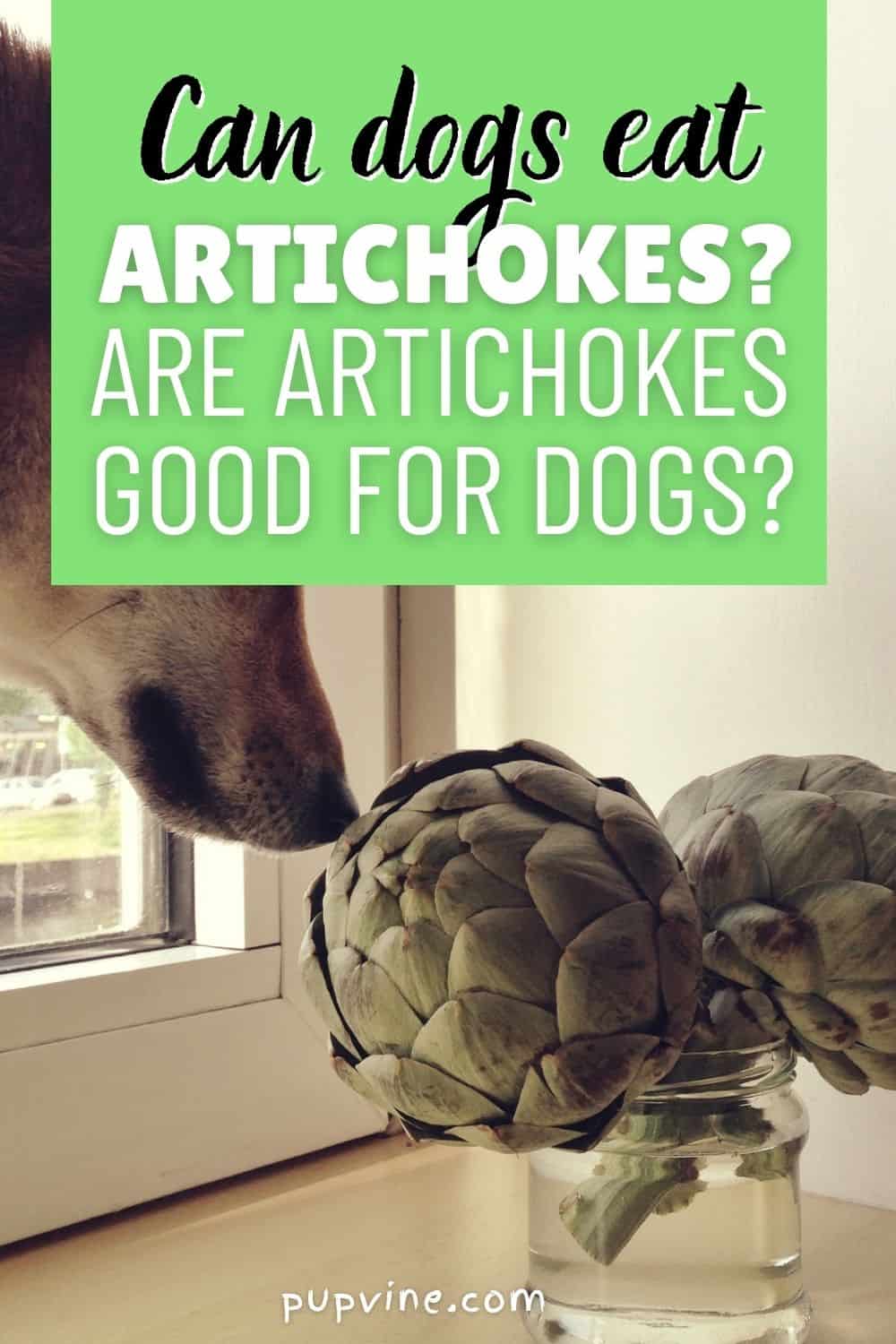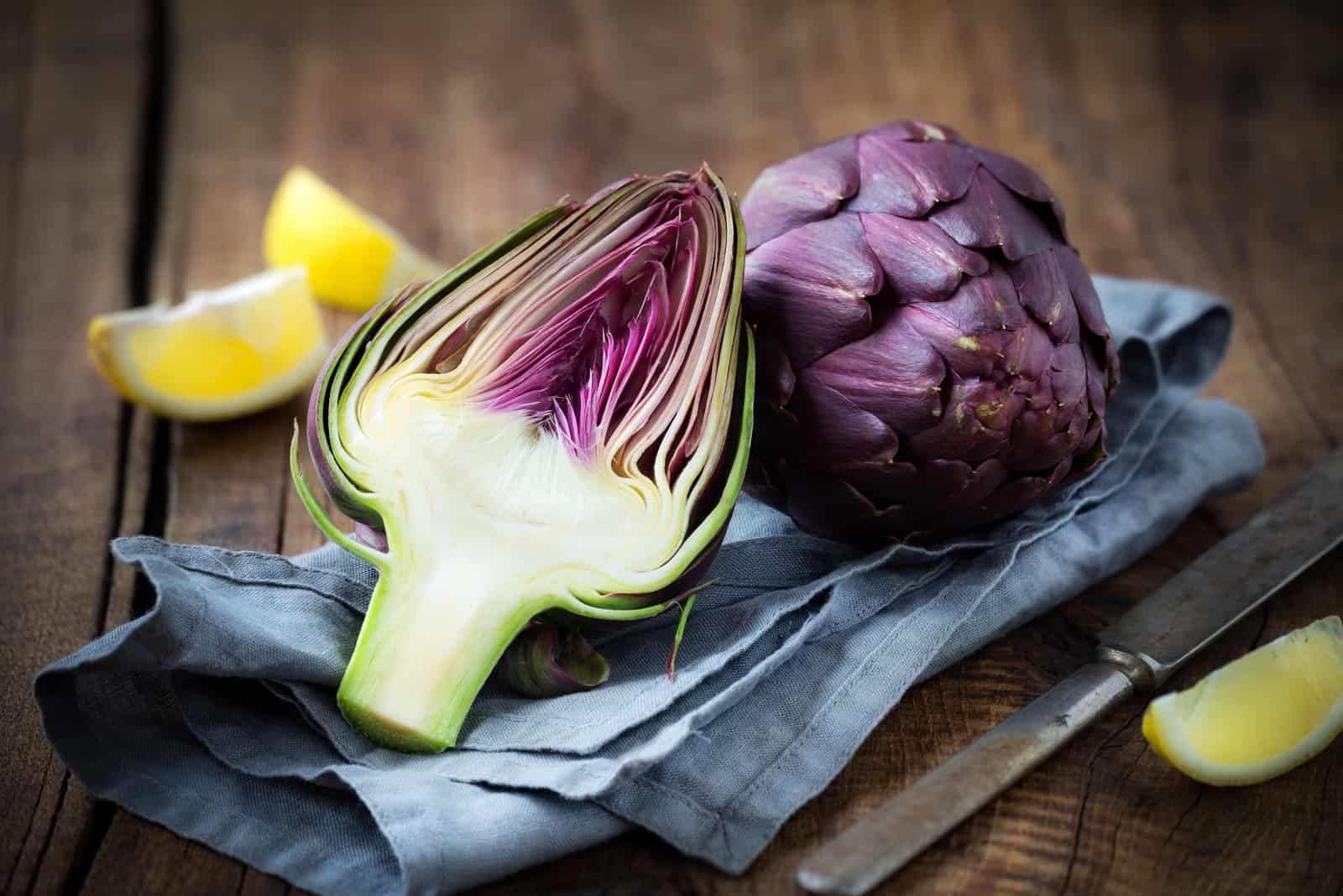When it comes to artichokes, you either love them or hate them; there is no in-between.
However, while most kids dread the idea of eating them, your dog will gladly take one from your plate! But, can dogs eat artichokes, or are they harmful to dogs?
As a dog lover, you should always know what your pooch can and cannot eat.
Also, you need to know what food can harm him if he grabs a bite of it while you’re not looking. So, can dogs eat artichokes? Are artichokes good or bad for dogs? Let’s find out!
Can Dogs Eat Artichokes?
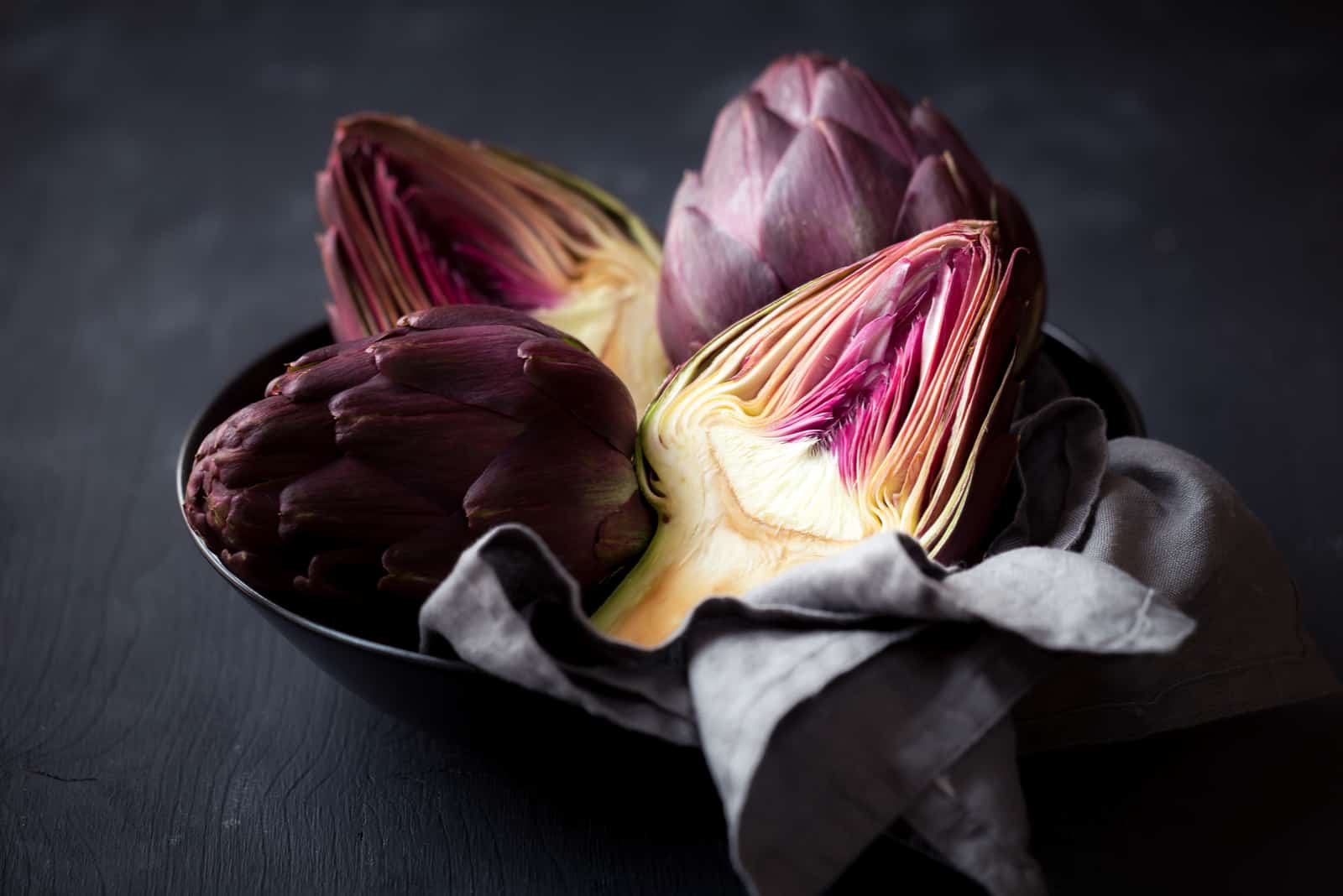
Artichokes belong to the sunflower family, but they are considered vegetables. They are, in fact, a perennial thistle.
They originate from the Mediterranean region, and they were quite popular among Roman nobles. Soon, they spread all around the world.
While artichokes are incredibly healthy for humans, should you give them to your pet dog?
Believe it or not, artichokes are safe for Fido and won’t give him any stomach issues. However, the only way they can eat this veggie is if you’ve prepared it the right way.
If you give your dog artichokes in moderation, they can be a fantastic healthy snack. They don’t have many calories and are low-fat. Also, artichokes are a natural antioxidant and are a high fiber vegetable.
As long as you give your pooch small pieces of artichokes and don’t go overboard – and prepare them appropriately – artichokes make a great replacement for artificial dog treats.
Are Artichokes Good For My Dog?
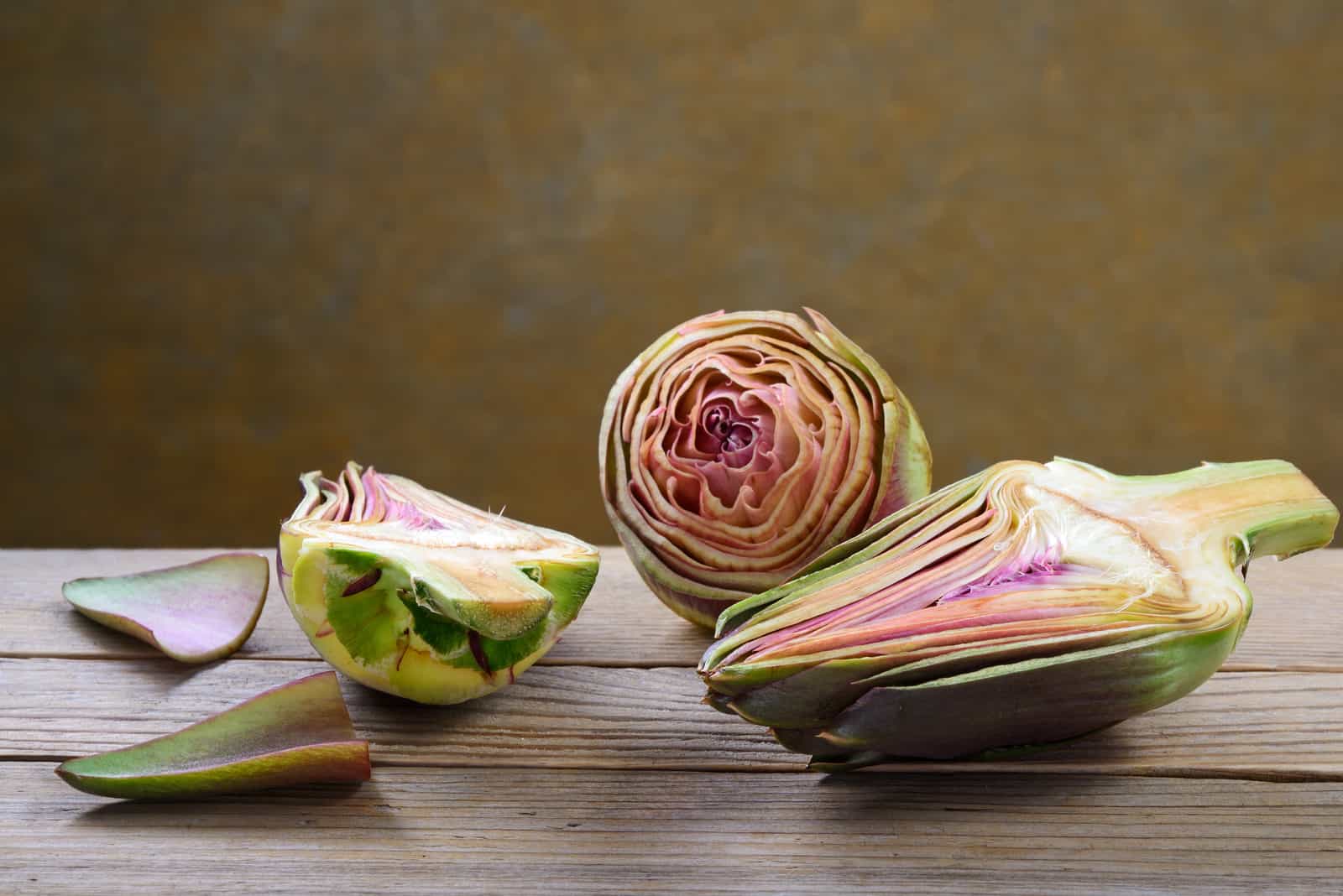
Since you know that dogs can eat artichokes, you’re probably wondering if artichokes are beneficial to your pet’s health.
Artichokes are perfectly safe for dogs. In fact, there are several health benefits of giving your dog these vegetables.
Artichokes have very few calories and fats but are rich in healthy vitamins and minerals, antioxidants, and dietary fibers. All of these help you raise a strong and happy pup!
Like most veggies, artichokes have a high amount of vitamins, including folate or folic acid, niacin (vitamin B3), vitamin C, and vitamin K.
This combination of vitamins can help a dog’s organism do many good things, including red blood cell production, DNA synthesis, as well as free radical elimination.
As for minerals, artichokes are rich in iron, magnesium, and potassium. As you can see, they are pretty healthy and can help your dog’s body function properly.
Another great thing about artichokes is their high fiber content. As you may know, fiber absorbs extra water in your intestines and increases bulk.
When you give your pooch food rich in fiber, you’re helping his bowels work properly and enabling him to have regular stools.
Fiber is also great for balancing the pH levels in a dog’s gut. This will prevent any harmful bacteria from multiplying and inhabiting his digestive system.
As you can see, artichokes are rather healthy, and they have several benefits for your pup’s immune system. They can improve his overall health and help him with an intestinal blockage and other stomach issues.
Artichokes have the highest amount of antioxidants among all vegetables. These antioxidants destroy free radicals, which are dangerous particles responsible for many genetic mutations.
Because of this, they can play an essential role in maintaining a dog’s health.
Not just that, but antioxidants have many anti-aging effects. They can also help dogs focus. A dog who eats artichokes can learn to complete tasks much faster.
Feeding artichokes to elderly dogs is also a good idea, as they can slow down the development of dementia in dogs.
Can Artichokes Harm My Dog?

Photo from: @sky_life2305
As you’ve seen, artichokes have plenty of health benefits. However, can they be bad for your pooch on certain occasions?
Certain parts of many vegetables can hurt your dog, especially seeds and roots. However, no parts of artichokes are toxic, so this is one less thing you need to worry about.
While we wouldn’t call artichokes harmful, there are a few situations where they could be considered dangerous. Since you don’t want to make a mistake, here are a few things you should keep in mind.
When it comes to many nutrients, canine stomachs are much more sensitive than those of humans. You should introduce any human food slowly, and you should have a vet on speed-dial.
If you want to feed your dog artichokes, you need to give them in small portions. If you go overboard, your dog might get an upset stomach. Some common issues might include vomiting, diarrhea, and even irritable bowels.
This is a crucial disclaimer when feeding artichokes to your dog: less is more. It would be best to cut the artichoke into bite-sized pieces. Not only will this make it easier for a dog to consume, but their stomach will digest it with less hassle.
Smaller pieces also prevent your dog from choking on it. Dogs are fast eaters, and they tend to swallow things without chewing them first.
Artichoke Recipes For Dogs
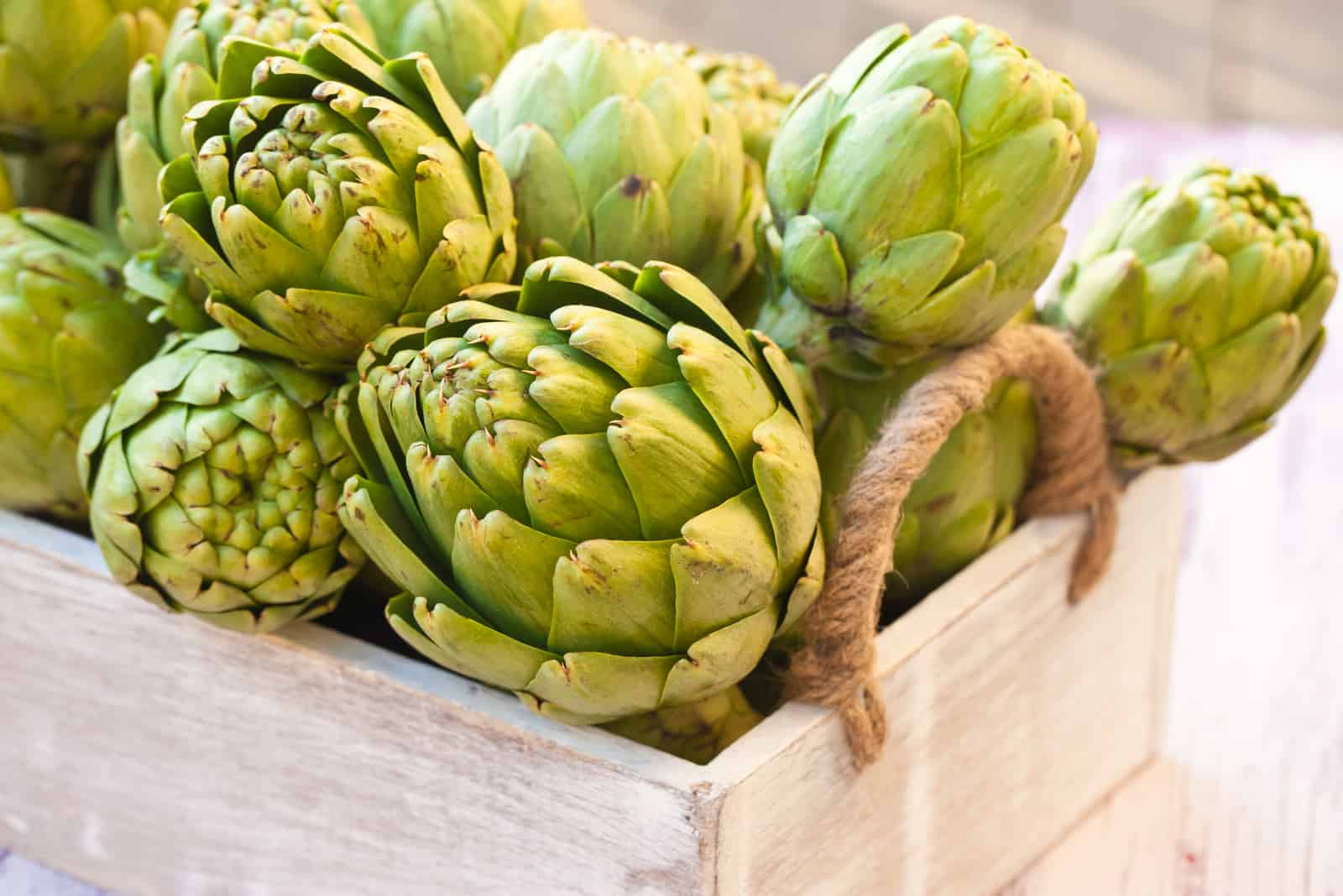
How should you prepare artichokes?
While all parts of this veggie are safe for dogs, some ways of preparing them are better and safer than others.
The best option would be to give your dog raw artichokes. This way, he’ll get all the healthy nutrients that artichokes lose during cooking. It doesn’t matter what part of the veggie you give to him. However, your dog may find artichoke hearts especially tasty.
You may also want to give your dog cooked artichokes. While this is acceptable, you should only boil the veggies, as any other cooking method might include added ingredients.
This immediately makes them less healthy than raw ones.
While talking about ingredients, you must understand that you should only give your dogs plain artichokes. Dogs don’t really care about the seasoning you add to their food.
Not just that, but many seasonings, such as garlic powder, onion powder, or salt, can be very dangerous for Fido. You should avoid them at all costs.
Dogs don’t do well with spicy food, and they won’t really care about the taste change.
Besides the preparation methods, you should think about what kind of artichokes you’re buying for your dog. It’s always the best to pick fresh artichokes.
Canned ones might contain added seasonings or preservatives that can be harmful.
Other Healthy Snacks
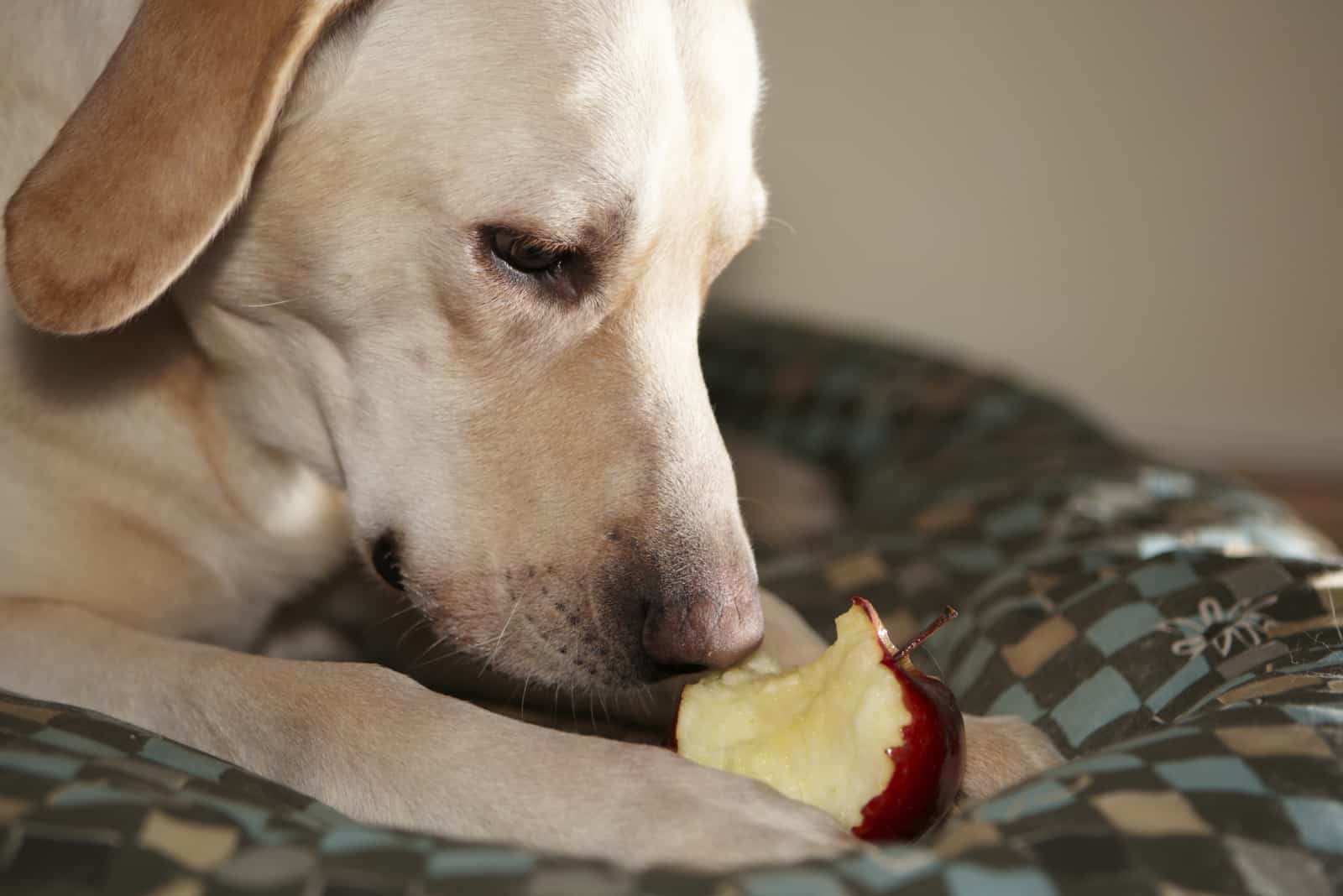
Since dogs can eat artichokes, are there any other healthy snacks you could give your dog?
Apples
Apples are another amazing treat your dog can have instead of fatty snacks filled with cholesterol.
They are high in fiber and a good source of antioxidants – especially vitamins C and A, which protect against the damage done by free radicals.
They can also remove residue from teeth, keeping your pup’s gums healthy and their breath as fresh as can be!
Keep in mind apple seeds are toxic to dogs. It is best to remove the core and seeds before giving your pup this fruit.
Fig Newtons
Figs are extremely healthy for dogs and can lead to many health benefits, as long as you give them to your pup in moderation. Too much fig can cause stomach problems for your pooch, so always monitor his intake.
Keep in mind that figs can cause issues for dogs with sensitive stomachs. If your dog is known to experience plant allergies, avoid giving him figs.
Bananas
Bananas are relatively low in sodium and cholesterol, high in fiber, and contain plenty of potassium, vitamins, and copper. This leads to a healthier heart, improved digestion, and an increase in energy. However, they are high in sugar.
Tuna
Tuna fish is another great addition to your pup’s diet. It’s rich in omega fatty acids, so it will keep your dog’s coat shiny and healthy. It also contains many healthy vitamins and minerals, leading to improved overall health.
Just keep in mind that tuna shouldn’t be fed to puppies, as it can irritate their sensitive stomachs.
Blueberries
Blueberries are high in fiber, rich in antioxidants, and contain many powerful phytochemicals such as anthocyanins.
If your dog doesn’t feel like eating blueberries, open them to release their scent. This might make them more appealing.
Carrots
Dogs can eat carrots, and they are very healthy as they’re rich in fiber and beta-carotene, which is a powerful antioxidant that protects against several diseases, such as cancer.
They are also great for keeping your dog’s teeth clean as they might remove plaque.
Paprika
Many dogs love paprika! This juicy vegetable can be great for your pooch, as it’s rich in antioxidants, and vitamins. However, as it’s also rich in fibers, it can cause indigestion if eaten in high amounts.
Of course, we’re talking about veggies such as bell pepper and not the chili pepper many humans love.
In Conclusion: Can Dogs Eat Artichokes?
If you’ve ever wondered if dogs can eat artichokes, now you know they can.
These veggies can be an excellent healthy snack you can give your dog instead of some more artificial options.
They have a high amount of vitamins, fiber, antioxidants, and minerals, and your dogs will love them!
Just remember to be cautious about how many artichokes you give your pup, how you prepare it, and what type of artichoke you buy.
Read Next: Beefhide Vs Rawhide: Which One Is Better For Your Dog If Any
